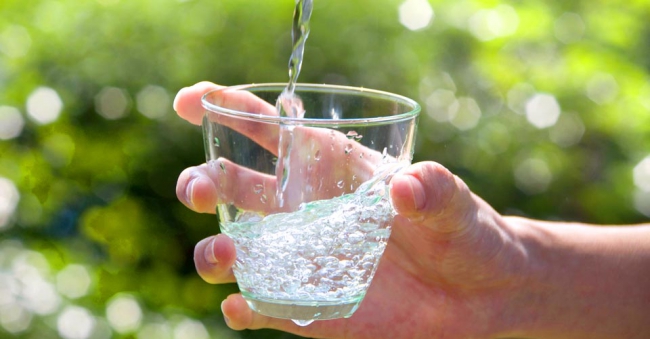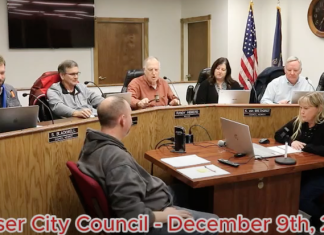  | |||
March 6 – 12, 2016 is National Ground Water Awareness Week. Each year Southwest District Health (SWDH) takes this opportunity to remind all private well water owners to test their drinking water. SWDH will provide free nitrate screening for drinking water on Tuesday, March 8, 2016, from 9:00 a.m. to Noon at 46 W. Court in Weiser. Bring the water sample in a wide mouth canning jar or a food-grade container taken on March 8.
In Idaho, well water systems are the source of drinking water for almost 95% of our residents. Since water from private wells is not tested or regulated by any public entity, private well owners must take the responsibility to protect their families against potentially dangerous
contaminants.
“Just as you check your smoke detectors seasonally, well owners should also test their well water annually to ensure water quality,” said Brian Crawford, Director of Environmental Health Services for Southwest District Health. “The only way to know if private well water contains contaminants is to have it tested.”
At a minimum, well owners should test for bacteria, nitrates, and any contaminant of local concern. The well water should be tested more frequently if there is a:
• Change in the water’s taste, odor, or appearance
• Problem such as a broken well cap or a new contamination source
• Family member or houseguest who has recurrent incidences of gastrointestinal illness
• Pregnant woman or infant living in the home
• Dangerous contaminant that shows up in your neighbors’ waterIn general, Southwest Idaho has elevated levels of arsenic, fluoride, and uranium in many areas. Because each contaminant may potentially cause a different health issue and various symptoms, it is vital to be a good steward of this valuable natural resource. The elderly, infants, children, pregnant women, and individuals with compromised immune systems are more vulnerable and likely to suffer from water contaminants.
Well water contaminants typically found in the Weiser area are nitrates and arsenic, while wells near Cambridge have been tested with elevated levels of arsenic and fluoride. The Mann Creek area continues to show high levels of arsenic, well above the Maximum Contaminant Level (MCL)
What are the serious health risks associated with these contaminants?
• Nitrates are normally caused by fertilizers, herbicides, and human and animal sewage. Infants and pregnant women may be at serious risk of developing health problems from elevated levels of nitrate.
• Short-term exposure to high levels of arsenic may cause gastrointestinal problems like nausea, vomiting, and diarrhea. Long-term exposure can cause cancer in humans, such as skin or bladder cancers. Non-cancerous signs of arsenic exposure include pigment changes to the skin, such as darker or lighter irregular shaped spots and/or thickening of the skin on the hands and feet.
• Ingesting too much fluoride can damage children’s emerging permanent teeth and can eventually lead to a painful bone condition in adults. Permanent teeth may emerge with discolorations and occasionally severe pitting.
Crawford suggests as a private well owner, you should practice these simple steps to protect your groundwater.
1. Test your well water yearly.
2. Don’t over apply pesticides, herbicides, and fertilizers. Always follow manufacturer’s instructions.
3. Remember to keep hazardous chemicals, such as paint, paint thinners, fertilizer, pesticides, and motor oil far away from your well. Handle hazardous substances over cement to avoid groundwater infiltration or runoff into surface water from accidental spills. Try to keep at least 50 feet between your well and kennels or livestock operations.
4. Don’t dispose of household hazardous wastes by dumping them on the ground, pouring them down the drain, or flushing them down the toilet. Instead, contact local waste authorities about proper disposal. Store hazardous household substances in sealed containers in a secure place.
5. Practice good well maintenance to prolong the life of your water well and related equipment. This includes periodically checking the well cap on top of the casing to ensure it is in good repair and securely attached. This seal should keep out insects and rodents.
6. Lastly, if you own a septic system, have it checked regularly by a qualified septic system contractor to prevent a breakdown that could pollute your groundwater.
Additional screenings for nitrates will be held on March 8 at other SWDH offices in Caldwell, Emmett, Payette, and Homedale. Transportation fees will also be waived for samples sent to the Idaho State Lab using the SWDH courier. However, fees charged by the State Lab will be the responsibility of the well owner.
For more information about these screenings, or if you need help in deciding what to test for, locating a certified lab, or understanding your water test results, call Southwest District Health at 208.455.5400.
Ground Water Awareness Week is sponsored by the National Ground Water Association (NGWA) as the nation’s leading authority on the use and protection of ground water. To learn more, visit www.WellOwner.org.

























